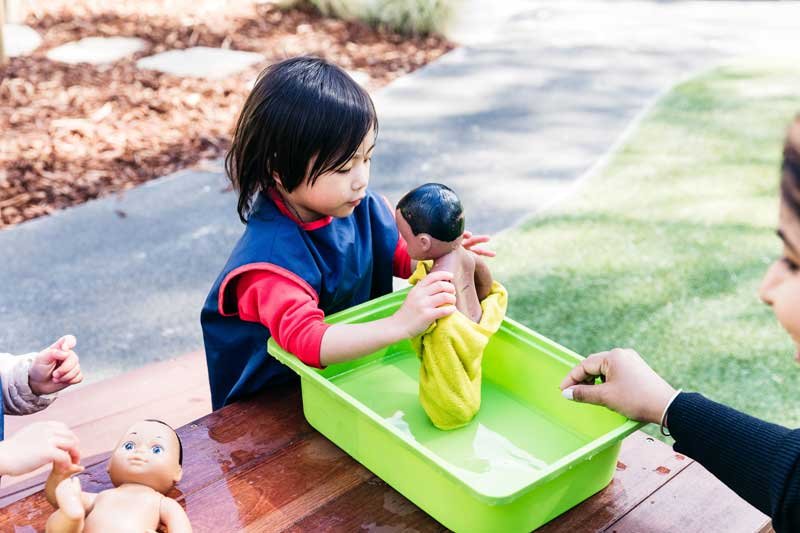|
Getting your Trinity Audio player ready...
|
Teaching kids good personal hygiene habits is crucial for their health and well-being. By instilling these habits early on, parents and caregivers can help children develop lifelong practices that promote cleanliness and prevent the spread of germs. In this article, we’ll explore 10 essential hygiene rituals that every kid should learn, to ensure they stay healthy and hygienic.

Handwashing
Regular handwashing is crucial for maintaining good hygiene and preventing the spread of germs, making it a vital habit for kids to learn. Parents and caregivers should emphasize the importance of washing hands thoroughly with soap and water for at least 20 seconds. This duration ensures that all surfaces of the hands are effectively cleaned, reducing the risk of transmitting harmful bacteria and viruses. Children should be taught to wash their hands diligently, especially before eating meals or snacks, after using the bathroom, and after playing outdoors or engaging in activities that may involve contact with dirt or germs. By instilling this habit early on, parents help children develop a strong foundation for personal hygiene, promoting their overall health and well-being. Handwashing is a simple yet powerful practice that can significantly reduce the risk of illness and keep kids healthy and safe.
Dental Care
Encouraging children to maintain good oral hygiene is essential for their overall health. It’s important to emphasize the importance of brushing their teeth twice a day and flossing at least once a day. By brushing in the morning and before bed, kids can remove plaque and food particles that can lead to cavities and gum disease. Using a fluoride toothpaste helps strengthen tooth enamel and prevent decay. Initially, parents should supervise brushing to ensure that children are effectively cleaning all surfaces of their teeth. As kids develop dexterity and understanding, they can gradually take on more responsibility for their oral hygiene routine. Supervision ensures that children develop proper brushing techniques and habits that will benefit their dental health for years to come. Regular dental check-ups and cleanings are also crucial components of maintaining good oral hygiene. By instilling these habits early on
Bathing/Showering
It’s important to instil in children the habit of bathing or showering regularly, adjusting the frequency based on their age and level of physical activity. Regular bathing helps remove dirt, sweat, and bacteria from the skin, promoting good hygiene and overall health. Parents should teach children to use soap or body wash to cleanse their skin thoroughly, emphasizing the importance of paying attention to areas prone to odour and bacterial growth, such as the underarms, feet, and groin. By incorporating regular bathing into their routine
Hair Care
Teach children how to shampoo and condition their hair properly, rinsing it thoroughly to remove any product residue or dirt. Encourage regular hair washing to keep their scalp clean and healthy.
Nail Care
Show kids how to trim their nails regularly to prevent dirt and bacteria from accumulating underneath. Emphasize the importance of keeping nails short and clean to reduce the risk of infections.
Clothing Hygiene
Teach kids to change their clothes daily and wear clean underwear and socks. Show them how to properly store dirty clothes in a hamper or laundry basket and assist with laundry as needed.
Toilet Hygiene
Instruct children on proper toilet hygiene, including wiping from front to back, flushing the toilet after use, and washing their hands thoroughly afterwards. Encourage them to use toilet paper sparingly and to avoid wasteful habits.
Respiratory Etiquette
Teach kids to cover their mouth and nose with a tissue or their elbow when coughing. Remind them to dispose of used tissues properly and wash their hands afterwards.
Foot Care
Show children how to keep their feet clean and dry, especially after physical activity or wearing closed-toe shoes for an extended period. Encourage the use of clean socks and properly fitting footwear to prevent foot odour and infections.
Environmental Hygiene
Instil in kids the importance of keeping their living environment clean and tidy. Teach them to pick up after themselves, organize their belongings, and participate in household cleaning chores to maintain a healthy living space.
Conclusion
By teaching kids these 10 essential personal hygiene habits, parents and caregivers can help them establish lifelong practices that promote health and well-being. Encourage children to take responsibility for their hygiene from a young age, and reinforce these habits through positive reinforcement and leading by example. With consistent guidance and support, kids can develop good hygiene habits that will serve them well throughout their lives.
You will find the following information useful:

